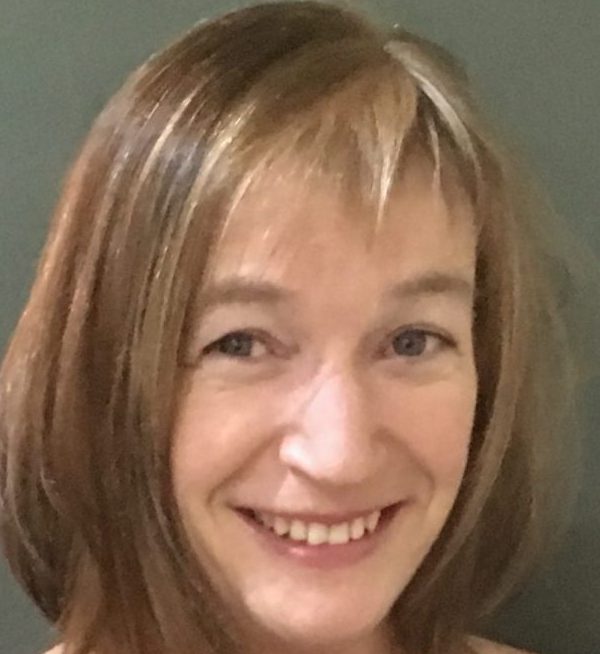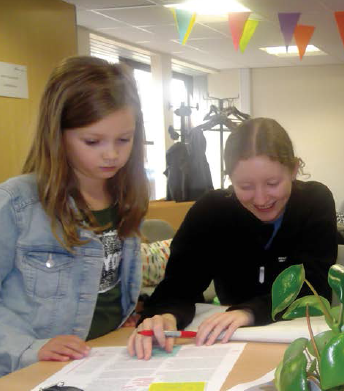Gaps in mental health provision for children highlight the chasm in mental health support for all
25 April 2019
Responding to Call 3 of our 25 Calls campaign, Michelle Lloyd, who has responsibility for Cyrenians’ Families and People services, says there has never been a better time to listen to young people about mental health and tackle the stigma they face
Call 3: All children and young people should have access to mental health support when they need it, based on rights, trust, privacy – and without discrimination
There has never been a better time to address the issues that affect young people and their mental wellbeing.
Increasing statistics and stories about the numbers of young people suffering from severe mental health issues in the media, health care reports and content on social media have raised public awareness and stimulated debate about the extent of young people’s mental health problems and the absence of appropriate support.
Public discourse, increasingly influenced by social media, has allowed young people to express their experiences in their own voices, creating the critical mass of social approbation required to define, formulate and enact meaningful mental health legislation, policy and support at a governance and legislative level.
The increasingly apparent gaps in mental health support and provision for young people has highlighted the chasm in our mental health support for all – as frontline services acknowledge that many of their daily engagements involve dealing with people with varying levels of mental health support needs.
In November 2018 the Guardian newspaper reported that, according to the emergency services watchdog, across the UK “more than half of all mental health patients who need help in a place of safety are taken there in a police car rather than an ambulance”, and according to the Metropolitan Police (MPS), the UK’s largest force, officers respond to a mental health call once every four minutes.
This is just one example of how austerity measures and cuts to funding across emergency services, youth services, social care, healthcare provision and criminal justice are affecting the increasingly visible tip of the mental health iceberg that many of us in the third sector have been aware of for some time.
As a charity that aims to end rough sleeping and has 50 years’ experience working with people at risk of becoming homeless, Cyrenians’ organisational learning shows that – like mental health – housing and homelessness are affected by a number of factors: family and peer support, access to training, education, employment, mediation, social justice and of course mental health.
Our Key to Potential team supports young people in achieving a positive destination – at college and in work or training. Most young people the team works with have been disengaged from school for months, sometimes years, for a variety reasons. While we assist them to understand the choices available our team are often supporting young people for whom mental health issues are the root factor in their ‘inability’ or ’unwillingness’ to leave their homes, speak to strangers or engage with their peers.
Cyrenians’ early intervention service the Scottish Centre for Conflict Resolution (SCCR) uses direct delivery, digital resources and free training to help young people and families improve understanding of conflict and emotional needs to reduce family conflict, one of the leading causes of youth homelessness in Scotland.
Understanding our own emotional states, feelings of anxiety, anger and the ability to accept and manage our feelings and emotions is an essential part of the SCCR’s work. Their findings indicate that 76% of parents and 30% of young people asked stated that family conflict affected their mental health in terms of being ‘isolated’, ‘depressed’ and ‘constantly lethargic’. Young people additionally stated that it made them feel ‘very suicidal’, ‘frequently’ self-harming and affected their performance at school.
Andrew Boyd, of the SCCR and Mediator at Cyrenians’ Mediation and Support services says: “Mental health problems such as depression, anxiety, self-harm and suicide can make conflict resolution more challenging, with low confidence and low self-esteem often resulting in withdrawal and isolation.”
The fact that poor mental health is both a symptom and a cause of a complex, interrelated web of social, educational, public health and economic factors affecting the lives of those most vulnerable in society is inescapable – regardless the size of the iceberg.
There is a lot of work to do, conversations to be had, listening and learning to be done by all of us – and not just those of us who work directly with, or on behalf of young people – but also those who make policies, decisions and choices that affect the mental health of the next generation of Scots.
The one action we can all take is to ensure that those of us who work directly with young people initiate and promote dialogue by supporting them through the worries, feelings, conflicts and struggles of everyday life. Through listening, accepting and guiding young people to talk about their mental health concerns, we can tackle stigma and the very real discrimination faced by young people due to mental health problems, which have a profoundly negative impact on their lives.
Regardless of our jobs, roles and remits we can ensure that as individuals we are committed to young people’s mental health and wellbeing, wherever they and we are on our journey.
References
Boyd, A. (2015, October 9). Conflict & Mental Health: a chicken and egg situation? Retrieved from Scottish Centre for Conflict Resolution.
Dodd, V. (2018). Police 'picking up pieces of mental health system', says watchdog. The Guardian.
(2016). National Survey: Reducing Conflict, Improving Lives.Scottish Centre for Conflict Resolution.
(2017/18). Scottish Government Homelessness Tables.Scottish Government.
Michelle Lloyd has responsibility for Cyrenians’ Families and People services - working with families to build resilience, resolve issues and repair relationships, support young people to achieve a positive destination and provide a safe and supportive environment for people at every stage of their journey.
She is responding here to Call 3 of our 25 Calls campaign, by the Changing our World children and young people's advisory group, "All children and young people should have access to mental health support when they need it, based on rights, trust, privacy – and without discrimination." Click here to read the call

About the author
Michelle Lloyd has responsibility for Cyrenians’ Families and People services
Click here for more
Call 3
All cyp should have access to mental health support when needed, based on rights, trust, privacy; without discrimination
Click to read the full call25 Calls campaign
Find out more about the 25 Calls campaign, view press coverage and read further responses
Click to find out more